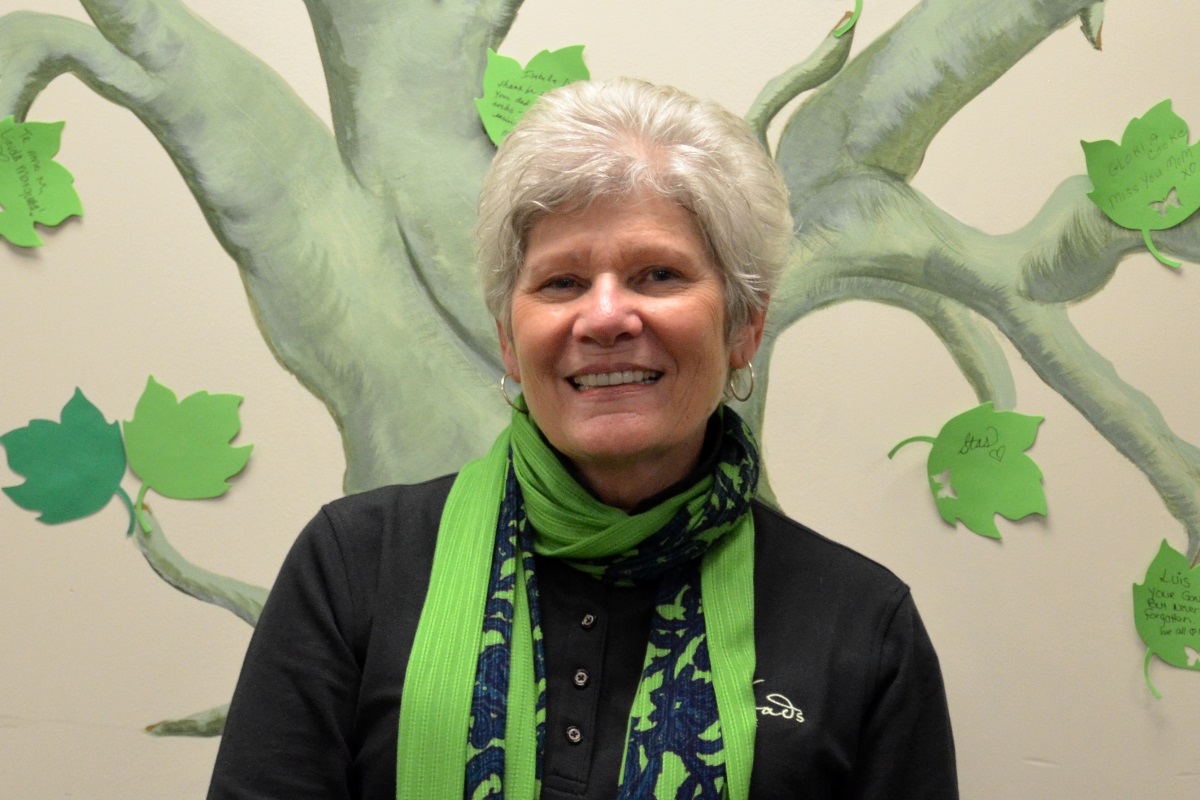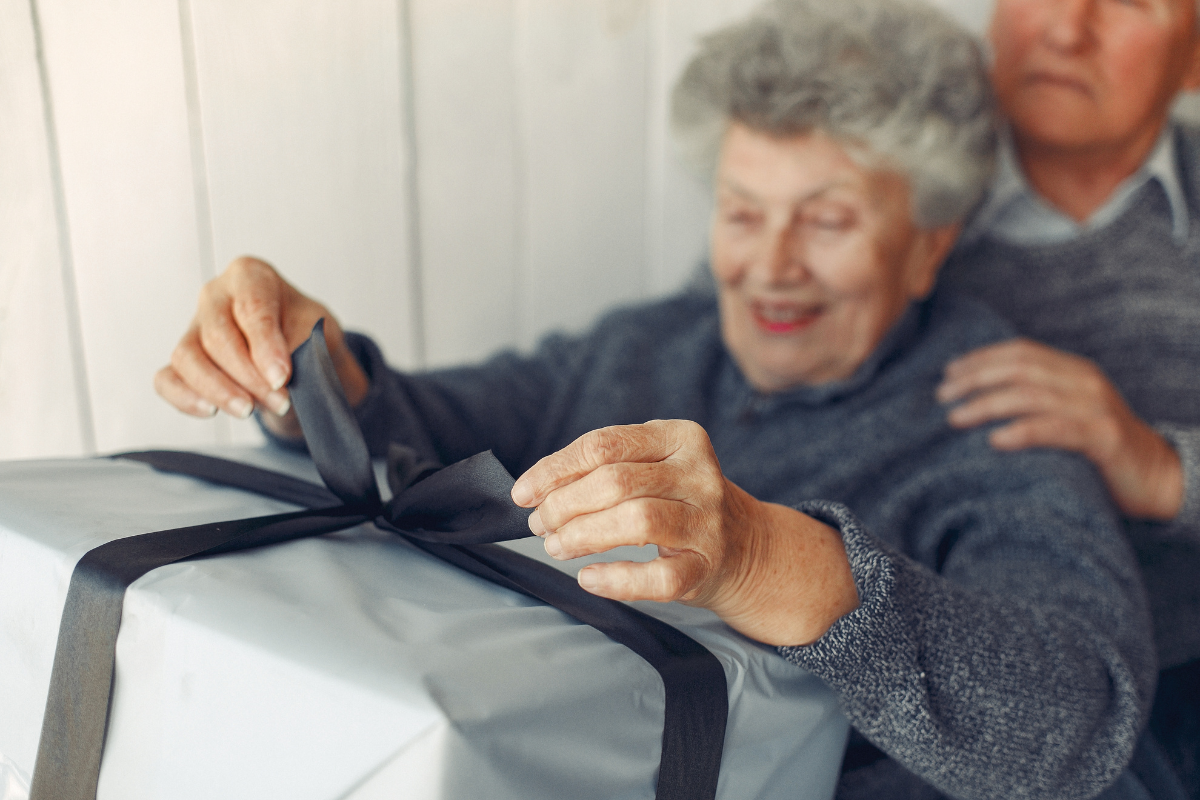Stories from a Hospice Executive Director

Crossroads Hospice & Palliative Care Executive Director Irene Rifkin has worked in end-of-life care providing compassionate care and support to patients and families for many years, but her own health crisis while on vacation in Aruba brought home how important a kind word can be when someone really needs it.
Name: Irene Rifkin
Role: Executive Director
Location: Philadelphia, PA
What roles have you worked in hospice care?
I started out as case manager. I have learned a lot through the years. I’ve had a lot of people to help me grow, a lot of support. Then I became an Assistant Clinical Director, and then I became Clinical Director. Throughout the years, I’ve had a lot of support and people helping me, and a tremendous amount of learning. Just recently, the executive position opened, and that’s how I became where I’m at today.
What do you wish more people knew about hospice care?
What I wish people knew more about hospice is to not be afraid of that word. It’s the word to help us through our final journey. And I’d like to take away the myth that if you go on hospice, you will not be here the next day. I wish people knew that hospice was about caring, helping people be comfortable, helping the families, and just taking people through the final journey.
Is there a patient that made a big impact on you?
I remember two patients specifically. One being the first patient I took care of: IND001. It’s funny that we’re doing this at this time of year. He was a huge Eagles fan, and that’s how we bonded. I was very nervous. He was my first patient, and I was new to hospice so it was a little different for both of us. But that was our bond, and we grew in that. The family was not as trusting and being able to have that common bond, we grew and they became more trusting. We were there at his death, and the experience of that and the family being very comfortable around all of us is a memory that I’ll always remember.
The second patient I remember we took care of this patient and the patient had a large family. There was a big snow storm that shut the city down. We knew that the patient was going to require EvenMore Care, so we had to get the staff that we needed. We had to make sure everybody was going to be where they would be because they wouldn’t be able to get out. I remember that the wife during the last half hour of the patient’s dying began singing to the patient. We encouraged her to do that. I’ll always remember that her birthday was the same day is mine. I saw her maybe a year later, and she said that she always remembered that we gave that to her. She maybe wouldn’t have thought to do that, and it was very calming to her and to her husband. Her son worked for the township, and he gave us an escort with a big salt truck to get to the family to be able to provide EvenMore Care. We were able to give them the comfort that they needed. They were very nervous because they didn’t think we would be there, and we were.
You recently faced a big medical challenge. What did you learn from that experience?
I was on vacation in Aruba, and I had a water accident. I broke my neck. I almost drowned. And I was paralyzed for a little bit. Thankfully, I am a blessed walking miracle, and what I take away from that is a couple of things. The biggest thing I would say is that it was obviously very scary. I was dependent on people and had no idea who they were. I was in a different country, and what I remember the most being totally helpless and being totally dependent.
The knowledge of the physicians and all the staff that I met was very important. But it did not compare to kindness, the compassion, and the reassurance that I felt and that I was given at such a time when I was pretty scared in a way that I’ve never had a fear ever in my life like that.
That’s what I always would like us to be. That’s what I hope that our staff, that our mission, that our service, that people see green when they see us, that [kindness] at the end of day is what you hope that our patients, our families, our staff at the facilities always get. Because there’s no amount of money that you can put on that when you need that at 2 o’clock in the morning or 10 o’clock in the morning or in that one moment that you just have to have that. They can literally hold your hand or look you in the eye with kind eyes or a smile; that’s what makes a difference, and that’s what made a difference to me. And of course the support from family, from staff, the support that you receive.
It was heavy in my heart, and I felt all the love, the prayers, and the support, and that’s what you want other people to feel. And that’s what you hope you can give to others. That’s my story that I get to share, and that I would like people to know.
What do you want people to know about Crossroads?
What I would really like people to know about Crossroads Hospice and what we represent is that we will be there for you. We hope that when you see the green that you know and you think, “Oh, there they are! Here they come. It’s going to be okay.” When we walk into a family’s home or into a facility or wherever we are, that people are comforted just by knowing when they see that that we’ll be there for them.
To make a referral or ask questions about hospice care, please call Crossroads Hospice & Palliative Care at 1-888-564-3405.
If you found this information helpful, please share it with your network and community.
Copyright © 2018 Crossroads Hospice & Palliative Care. All rights reserved.




